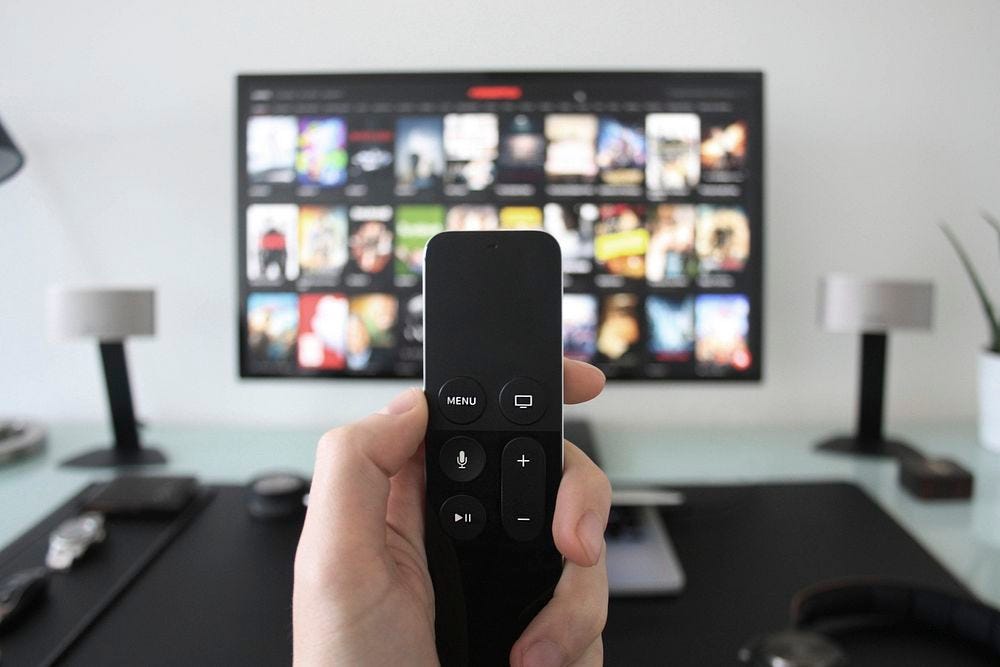
Alright, buckle up, fellow TV fanatics! We’ve all been there, haven’t we? You dedicate weeks, months, or even *years* of your life to a show, falling head over heels for its characters and getting utterly lost in its world, only for it all to come crashing down in one final, soul-crushing episode. Sometimes, it’s a beautifully melancholic goodbye that leaves you a sobbing mess, echoing Gandalf’s wisdom to Frodo: “not all tears are an evil.” Other times, it’s an ending so unfair, so infuriating, you want to throw your remote through the screen.
It’s truly impossible not to get invested when you watch a show week after week, year after year. These characters become your family, and their goodbyes, well, they feel like your goodbyes too. The saddest TV finales become even more tragic once it hits you that the whole show is over and there are no more episodes to redeem the one you just watched. We’re talking about those final moments that stick with you, haunting your thoughts long after the credits roll, making you question everything you thought you knew about storytelling.
So, grab your tissues (you’ll definitely need them!), because we’re about to take a deep dive into some of the most tragic TV show endings that still sting, years later. These are the finales that delivered emotional, and sometimes soul-crushing conclusions, leaving viewers choked-up, sobbing messes, and often feeling like they’d been personally wronged. Get ready to dredge up some old memories and maybe shed a few more tears as we revisit the finales that made us cry, sometimes with joy, often with utter despair.
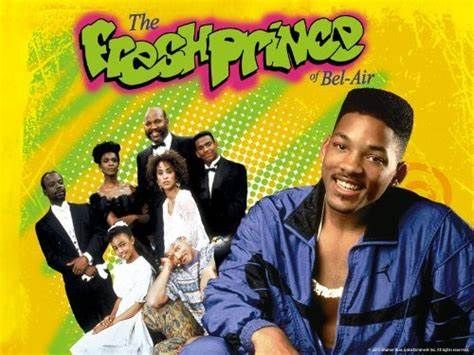
1. **”I, Done” (The Fresh Prince of Bel-Air):** Oh, the feels! Just thinking about the series finale of “The Fresh Prince of Bel-Air” is enough to get those nostalgic tears flowing. “I, Done” delivered an emotional sendoff for the characters we came to love, perfectly capturing the bittersweet essence of moving on. We watched Will grow from a street-smart kid from West Philadelphia to a young man finding his place, and this episode brought that journey to a profoundly touching close.
The most emotional moment, the one that truly solidified this as a tearjerker, was probably Uncle Phil telling Will, with all the warmth and gravitas only he could muster, “You are my son. End of Story.” It wasn’t just a line; it was the culmination of years of a complex, loving, and often challenging relationship, transforming a guardianship into an undeniable paternal bond. This declaration hit hard, affirming the deep family ties that had formed over six seasons.
For many of us, saying goodbye to Will and the Banks family felt exactly like Will wasn’t ready to say goodbye to his own family. It was like parting with that comfortable, reliable friend you always counted on for laughs and life lessons. The emotional resonance of this finale still holds up, reminding us that even the funniest shows can deliver some of the most genuinely heartbreaking goodbyes, leaving us with a collective “sob.”

2. **”Brave New World, Part 2″ (Boy Meets World):** If you grew up with Cory, Shawn, Topanga, and Eric, then the final episode of “Boy Meets World” undoubtedly left a permanent tear-shaped mark on your heart. “Brave New World, Part 2,” which aired on May 05, 2000, was the ultimate farewell to a group of friends who were not just characters on a screen, but extensions of our own childhoods and coming-of-age struggles. It was a beautiful, emotional culmination of seven seasons of growth, laughter, and invaluable life lessons.
The episode centered around the core group saying goodbye to the man who shaped and inspired them more than anyone else: Mr. Feeny. Their beloved mentor, teacher, and neighbor, Mr. Feeny had been a constant source of wisdom and guidance throughout their lives, always pushing them to be better people. His classroom was more than just a room; it was a sanctuary of learning and personal development, and their final meeting there was charged with an almost unbearable significance.
Each of them, Cory, Shawn, Topanga, and Eric, took a moment to express their profound gratitude, thanking Mr. Feeny for everything he had done for them, especially for pushing them to be better people. These were not just thank-yous; they were heartfelt tributes to a man who had seen them through awkward phases, triumphs, and heartbreaks. The weight of their departing words, acknowledging his immense impact, made the moment incredibly powerful and deeply resonant.
By the time Mr. Feeny uttered the final words of the series, “Class dismissed,” there isn’t a dry eye in the house, both on screen and for millions of viewers at home. It was a perfect, understated, yet utterly devastating conclusion that symbolized not just the end of their schooling, but the end of an era. The finale perfectly encapsulated the bittersweet nature of graduation and moving on, leaving us with tears as we remember those last emotional moments.
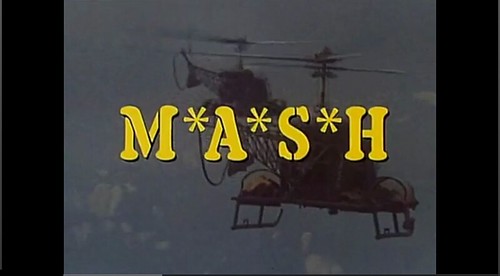
3. **”Goodbye, Farewell and Amen” (M*A*S*H):** Prepare yourselves, because the last episode of “M*A*S*H” is not just sad; it’s a truly monumental, two-hour-long, bittersweet gut-punch that redefined what a series finale could be. Airing on February 28, 1983, this episode was set during the final days of the Korean war, bringing the 11-season journey of the 4077th Mobile Army Surgical Hospital to a close with a devastating, yet cathartic, sense of finality.
This bittersweet ending showed the viewer how all the characters were affected by the war, a conflict that had consumed years of their lives and fundamentally altered their perspectives. It wasn’t just about the physical toll; it explored the deep psychological scars left by constant exposure to unimaginable horrors. The episode delved into the mental strain and the irreversible changes that had taken hold of these individuals, making their goodbyes all the more poignant.
While there’s a shocking revelation about a traumatic event in Pierce’s past, the saddest moment is probably the final shots of the show as Pierce and Hunnicutt say their goodbyes. Before those farewells happen, we get a meaty plot about the weight of the conflict, and what it’s done to Hawkeye Pierce, the show’s main character.
In this episode, Hawkeye revisits a traumatic incident that occurred as his unit was returning from a beach outing. Their bus eventually picked up a number of refugees, but was forced to pull off the road in order to avoid being spotted. Hawkeye specifically recalled telling a woman to quiet her chicken, and the woman killing the chicken to keep it from making noise.
Later on in the episode, we learn that Hawkeye has repressed the real memory: It wasn’t a chicken she was trying to keep silent, but her own baby. The woman smothered her baby in order to survive, and Hawkeye can’t cope with the reality of that memory. It’s a dark, dark turn for the final episode of the show, but one that feels necessary, as “M*A*S*H” never shied away from depicting the brutal realities of war.
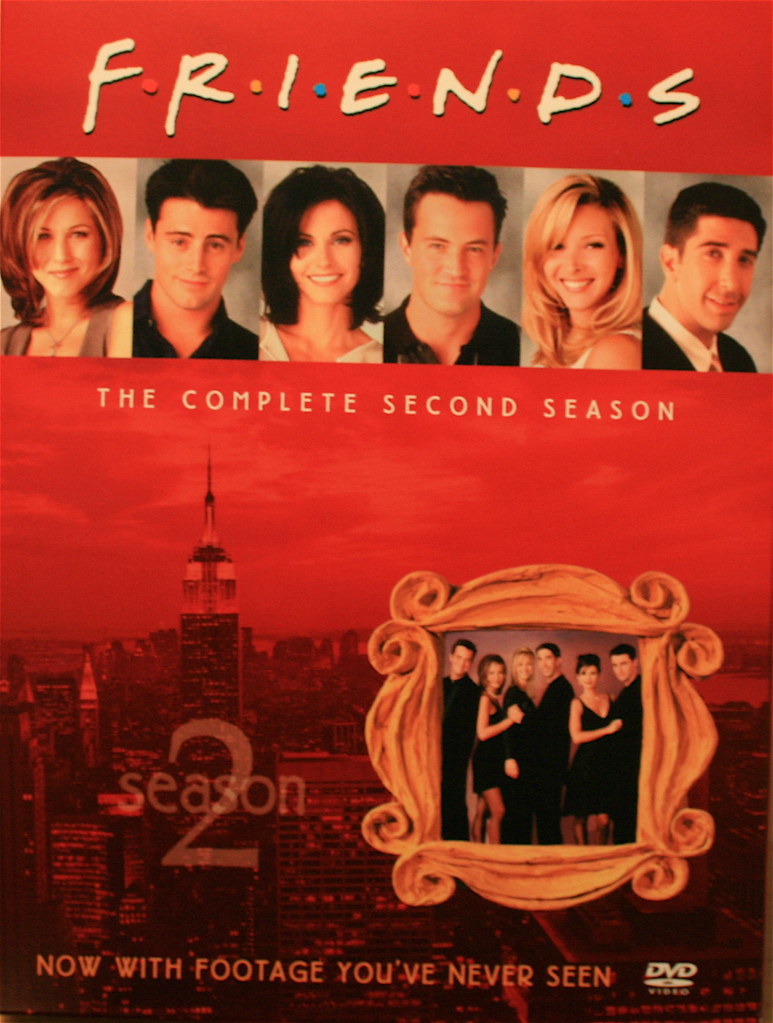
4. **”The Last One” (Friends):** Oh. My. God. Could this *be* any more heartbreaking? Saying goodbye to “Friends” on May 06, 2004, after ten seasons, felt like saying goodbye to your baby blanket, the one you secretly took with you to sleepovers to make you feel safe. This wasn’t just a TV show; for many, it was a cultural touchstone, a comfort, a weekly appointment with six people who felt like, well, friends. The final episode, aptly titled “The Last One,” perfectly encapsulated the end of an era.
Over the course of ten seasons, the characters in “Friends” became our family. We celebrated their triumphs, commiserated in their heartbreaks, and laughed with them through countless ridiculous situations. The anticipation for this finale was immense, and it delivered an emotional punch that lingered long after the credits rolled.
The moment that truly twisted the knife for many viewers was seeing the apartment stripped of its colorful kitchenware and furniture. It was a visual metaphor for the emptiness that fans were feeling – as empty as the apartment. That purple door, the mismatched furniture, the familiar coziness – it was all being dismantled, signifying the end of an irreplaceable chapter, not just for the characters, but for everyone who had invited them into their living rooms.
The final scene, where the gang leaves their keys on the counter and heads down for one last coffee at Central Perk, was a quiet, profound moment of collective grief and acceptance. It was a beautiful, understated way to signal the end, without grand pronouncements or overly dramatic farewells. Instead, it was simply the passage of time, the bittersweet reality that even the most enduring friendships evolve, and beloved spaces eventually fade.

5. **”Finale” (The Office):** Get ready to ugly-cry with joy and nostalgia, because “The Office” finale, which aired on May 16, 2013, truly captured the heart of the series in a way that felt both incredibly satisfying and deeply emotional. After nine seasons of mockumentary magic, awkward silences, and genuine heart, the show delivered a conclusion that managed to be sweet, funny, and wonderfully weird all at the same time, perfectly honoring its unique blend of humor and humanity.
This finale felt like a warm, comforting hug, providing almost everyone with their happily ever-after. We saw Dwight and Angela finally tie the knot, Jim and Pam navigate their future, and even Michael Scott made a surprise, heartwarming return that brought a collective cheer (and a few tears!) from viewers. It wasn’t just about tying up loose ends; it was about celebrating the profound impact these quirky Dunder Mifflin employees had on each other.
In true Dunder Mifflin fashion, each character looked straight into the camera, just as they had done countless times throughout the series, and told you what it all meant to them. These were not just character monologues; they were heartfelt confessions, reflections on their journeys, and acknowledgments of the bonds forged in the mundane world of paper sales. Hearing them articulate their feelings directly to us made the experience incredibly intimate and personal.
The episode was a masterclass in blending heartfelt sentiment with the show’s signature humor. It managed to evoke genuine emotion without ever becoming overly saccharine, maintaining its authentic, often quirky, voice right to the very end. This finale was a testament to the show’s brilliant writing and character development, delivering a conclusion that was not only satisfying but truly heartwarming. It was heartfelt and heartwarming, a perfect farewell.
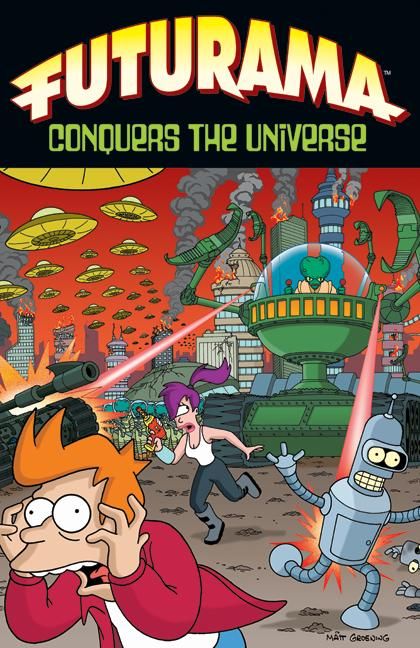
6. **”Meanwhile” (Futurama):** Who knew a sci-fi animated comedy could deliver an ending so utterly romantic and tear-jerking it would have you sobbing with joy? The final episode of “Futurama,” titled “Meanwhile,” which aired on September 04, 2013, was a beautiful, inventive, and deeply moving conclusion that perfectly encapsulated the show’s unique blend of humor, heart, and mind-bending science fiction. It was an ending that felt both grand in its scope and incredibly intimate in its emotional core.
The episode saw Fry and Leela finally getting married, after seasons of will-they-won’t-they. But this is “Futurama,” so naturally, typical wedding bells were quickly overshadowed by science-fiction hijinks. A misadventure involving a time-stopping device leads Fry to inadvertently trap himself and Leela in a world where time has stopped for everyone but them. This bizarre premise, however, set the stage for one of the most romantic and bittersweet sequences.
With the rest of the universe frozen, Fry and Leela were given an extraordinary gift: an eternity together, completely alone. They travel the world, growing old together, sharing countless experiences, and fulfilling every dream without the constraints of a ticking clock. It was a profoundly intimate portrayal of enduring love, showcasing their relationship deepening over what felt like a lifetime, truly reinforcing the depth of their bond away from all the usual comedic chaos.
Eventually, the Professor appears, offering them a way to go back in time. Fry asks Leela if she wants to “go around again,” and she says, “I do.” It was a perfect, understated, and utterly romantic callback to their wedding vows, confirming their unwavering commitment to each other. And the fans sob with joy, a testament to a finale that found its emotional depth amidst its sci-fi absurdity, celebrating love that transcends time itself.

7. **Fleabag (Amazon Prime Video):**When “Fleabag” proudly declared its second and final season to be “a love story,” our hearts (and tear ducts!) were already prepared for something special. But in true Phoebe Waller-Bridge fashion, this wasn’t going to be your typical happily-ever-after. The thrust of the season was our titular character falling head-over-heels for a priest, who, spoiler alert, ultimately chooses a higher calling.
The final scene at the bus stop is one for the ages, a masterclass in devastating heartbreak. Fleabag, vulnerable and open, tells him she loves him. His reply? A gut-wrenching, “It’ll pass.” Ouch. Even though he admits he loves her back, he’s committed to God, leaving her (and us) utterly heartbroken that she doesn’t get to be with him. It’s a quiet, poignant moment that speaks volumes about sacrifice and different paths.
But here’s the kicker, and what makes it truly unique: by the end, we realize Fleabag will probably be okay. In a powerful, symbolic gesture of finality, she walks away from the camera that has followed her every wry glance and confession throughout the series. She no longer needs to share her life with us, breaking the fourth wall for the last time. It’s a reminder that sometimes, even if love doesn’t conquer all, life goes on, and we, as an audience, have to be okay with that too. That doesn’t make it any less quietly devastating though.

8. **Six Feet Under (HBO):**If any show was expertly crafted to leave you a sobbing, existential mess by its finale, it was “Six Feet Under.” This series was literally designed in a lab to devastate everyone who ever loved it, and honestly, it succeeded spectacularly. As Claire, the youngest of the Fisher family, drives away from the life she’s always known, we’re treated to one of the most iconic (and emotionally pulverizing) montages in television history.
We watch, with a lump in our throats and tears streaming down our faces, as every single beloved character we’ve followed for five seasons meets their maker. It’s a perfect, almost poetic summation of death’s inevitability and, surprisingly, its beauty. The show doesn’t just kill them off for shock value; it suggests that each character lives a full, meaningful life before, at some point, passing away, as all people eventually must.
“Six Feet Under” doesn’t wield death as a cudgel or merely a device for cheap emotional reactions. Instead, it presents death as the natural, inescapable part of being alive that it is. Everything truly is temporary, and in this unforgettable ending, the show delivers a gut-wrenching reminder to cherish what you have while you have it. It’s a finale that hits you right in the soul, making you contemplate your own mortality in the most profound way.

9. **Dinosaurs (ABC):**Hold on to your prehistoric hats, folks, because out of all the shows on this list, “Dinosaurs” might seem like the *most* unlikely candidate to make you weep. I mean, it’s a unique series about a family of dinosaurs thriving in a world run by their species. You’d expect laughs, right? Wrong. This show leaned *hard* into darkness in its finale, delivering one of the bleakest, most unforgettable endings you might ever witness.
It turns out that these dinosaurs, so consumed by a relentless desire for profit, inadvertently bring about their own demise. Yes, you read that right. The show suggests it’s the dinosaurs themselves who cause the ice age, effectively creating their own extinction event. Talk about a brutal, self-inflicted wound! It’s an anti-capitalist screed, a stark warning about prioritizing profit over people (or, you know, a habitable planet).
This message feels incredibly prescient in an era where climate change looms large over human decisions. “Dinosaurs” had the sheer audacity to kill off its entire main cast, and indeed, the entire dinosaur race. Even shows *about* the end of the world don’t usually go *that* bleak. In wiping out its beloved stars, the show made a chillingly valuable point about where we, the human viewers, might be headed if we don’t learn from history. It’s a gut punch of a finale that sticks with you.
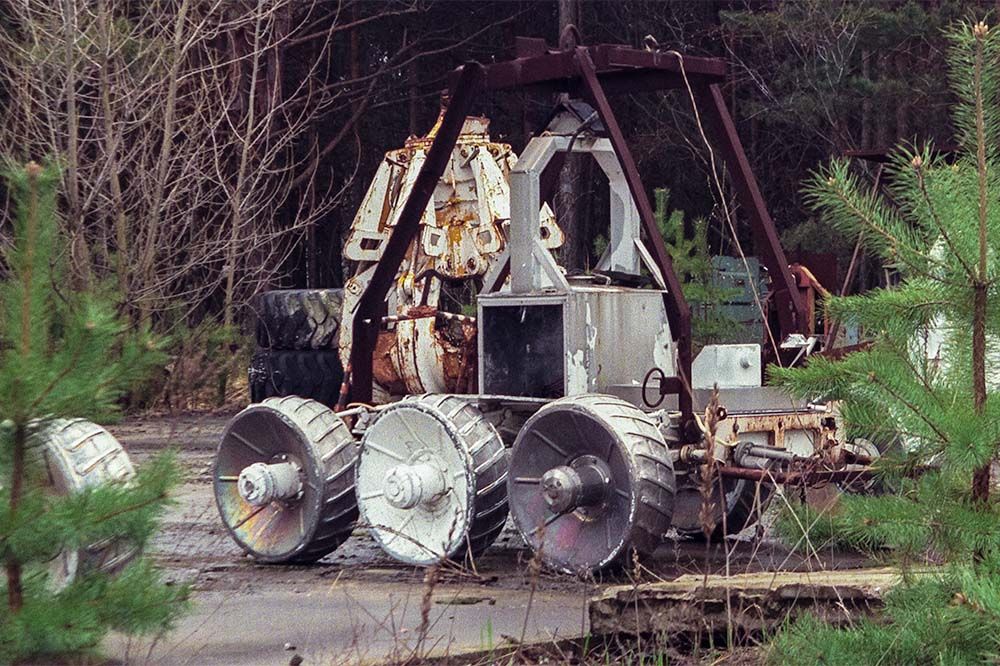
10. **Chernobyl (HBO):**Though a concise five-episode miniseries, “Chernobyl” left an indelible, chilling mark on viewers. It masterfully recounted the previously untold story of the Chernobyl disaster, shining a harsh spotlight on the systemic bureaucracy that so catastrophically failed to manage the crisis. The final episode, a harrowing conclusion, portrays the U.S.S.R.’s half-hearted attempts to assign accountability.
Ultimately, only a few low-level facility workers are held responsible, while the entire, deeply flawed system they operated within is completely ignored. The pervasive lies about the Chernobyl facility, and the hazardous conditions that allowed such an unfathomable disaster to occur, are never truly reckoned with. It’s a suffocating portrayal of institutional failure and denial that just makes your blood boil.
This unbearable truth leads to the series’ crushing climax: Valery Legasov, the brilliant crusader and hero of the series who desperately seeks to reform the U.S.S.R.’s nuclear safety protocols, tragically takes his own life. He understands, at a fundamental level, that the crucial changes he fought for will never come to pass because people are simply more comfortable clinging to the lie. And that, quite frankly, is a devastating truth he simply cannot live with. It’s a finale that leaves you with a heavy, cold despair.
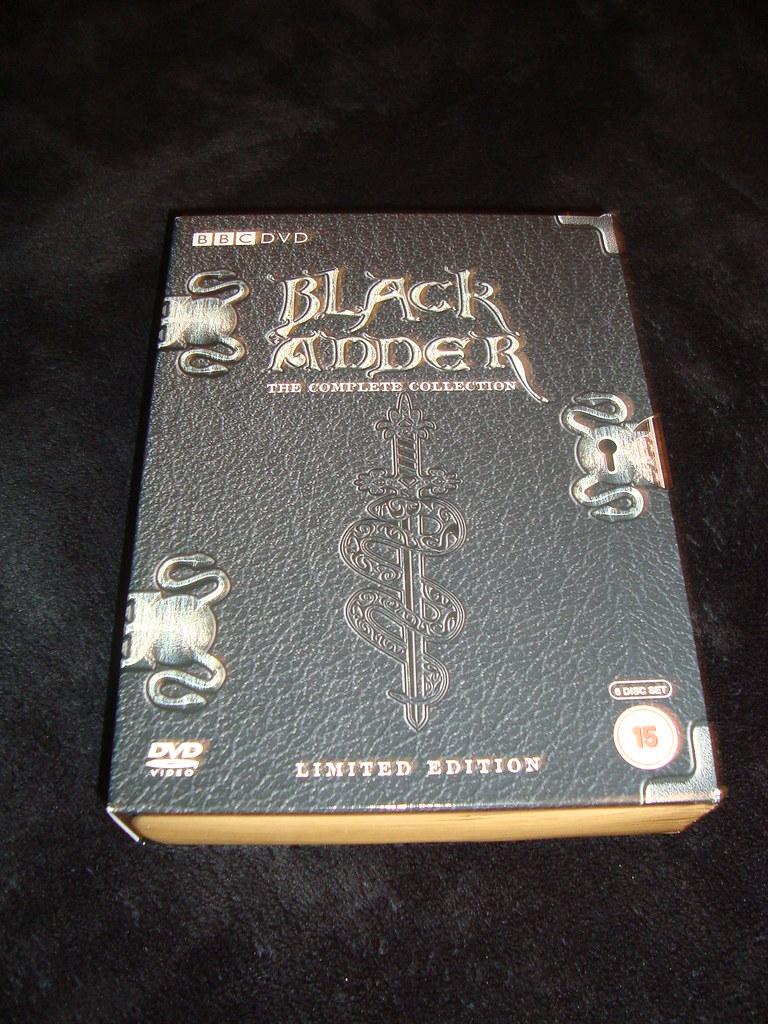
11. **Blackadder (BBC):**Each iteration of “Blackadder” transported us to a different historical era, maintaining its signature witty, cynical tone. However, its final season, “Blackadder Goes Forth,” placed our antihero and his familiar companions squarely in the brutal trenches of World War I. Because it was a comedy, you might have initially expected it to trivialize the grim reality of war. Oh, how wrong we all were.
In a stunning turn, the show took the exact opposite approach. In its final, unforgettable episode, Blackadder and the core characters realize, with chilling certainty, that they are about to embark on a mission of no return. They spend much of the episode frantically attempting to escape their inevitable fate, clinging to any slim hope of survival. It’s a desperate, poignant race against time for men facing the ultimate horror.
Then, in the show’s final moments, they bravely (or perhaps foolishly, or simply resignedly) hop out of the trench, plunging into the deafening barrage of gunfire. They are, presumably, gunned down in a chaotic blaze. Few shows possess the sheer guts to kill off their *entire* main cast in the finale, but “Blackadder” did exactly that. It was widely acclaimed not just for its audaciousness, but for the ruthless honesty with which it depicted the indiscriminate horrors of war. It’s a sobering, powerful conclusion that leaves a lasting scar.
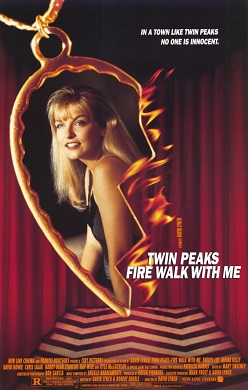
12. **Twin Peaks (ABC):**The original run of “Twin Peaks” delivered a finale that was anything but uplifting, leaving viewers in a truly dire state. Disregarding the 2017 sequel “Twin Peaks: The Return” (which, let’s be real, was more a continuation for the ages), the 1991 Season 2 finale left us picking our jaws up off the floor. We initially believed that the steadfast Dale Cooper had successfully entered the Black Lodge, rescued Annie Blackburn, and returned to the quirky town of Twin Peaks unscathed.
However, in the show’s mind-bending final moments, that hopeful illusion shatters. We discover that Dale Cooper is no longer the principled, stand-up FBI agent we adored from the start. He has been horrifyingly corrupted by BOB, the malevolent presence that had haunted the town and was responsible for Laura Palmer’s tragic death. It’s a switch that truly pulls the rug out from under the audience, redefining what we thought the hero’s journey was all about.
In its original run’s final gasp, “Twin Peaks” completely changed the game, leaving us without even realizing it until it was too late. You believed you were watching a triumphant, happy ending, only to realize that the stalwart hero you championed was utterly absent. In his place stood a chilling vision of pure evil, a truly devastating and unforgettable conclusion that left us questioning everything.
And there you have it, fellow binge-watchers and devoted fans. From the bittersweet goodbyes that made us feel like we were losing family members, to the brutally bleak endings that dared to show us the unvarnished truth about systems, humanity, or even love itself, these television finales have etched themselves into our collective memory. They might have left us depressed, crying, or utterly confused, but one thing is certain: they made us feel. And isn’t that, ultimately, what makes a truly unforgettable story, even if it feels incredibly, undeniably unfair?



